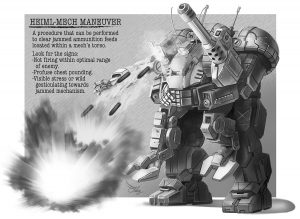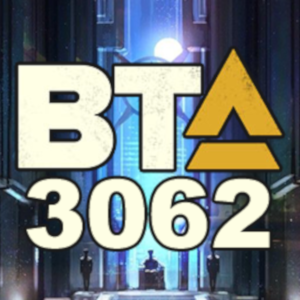Template:Wbr/doc
Sarna News

- Bad ‘Mechs - Sentinel
- HEXTECH Review - Wave 3 Brings More Urban Options To Your Battlefield
- Your BattleTech News Round-Up For March, 2024
- Crashing 'Mechs With Jennifer Brozek, Author Of The Rogue Academy Trilogy
- Getting The Word Out With Rem Alternis, Catalyst Community & Marketing Director
- Read more →
| This is a documentation subpage for Template:Wbr. It may contain usage information, categories and other content that is not part of the original template page. |
Wbr indicates a word break opportunity. This template includes the HTML tag <wbr />, which is used to tell the browser of an optional, non-hyphenated line-break. It can be used with:
{{nbsp}}or the equivalent (non-breaking space){{nowrap}}or the equivalent<span style="white-space: nowrap;">...</span>or<span class="nowrap">...</span>(character string that will not break even at a normal space)
to carefully control line-breaking where this is important.
Contents
Usage[edit]
Use is simple; there are no parameters:
{{wbr}}
or
{{subst:wbr}}
Controlling line-breaking in infoboxes[edit]
This template can be used to cause an indentation after a linebreak, in unbulleted lists inside infoboxes and in tables with constrained cell widths, by using {{wbr}} between words in an entry, so that when they wrap they are not mistaken for separate entries. See example infobox to the side.
Breaking up slashes[edit]
When there are long words on both sides of a slash, this template may be used to induce a line break after the slash.
- installation/
execution installation/{{wbr}}execution
Technical details[edit]
This template encapsulates the code <wbr />​, i.e. the HTML5 line break opportunity element followed by the HTML character entity for the Unichar character. This approach is superior to using either one or the other in isolation, for increased browser support. The <wbr /> element is compatible with all browsers except Internet Explorer inclusive of and since version 7. Meanwhile, the ZWS character is compatible with all browsers except Internet Explorer earlier than (but not inclusive of) version 7. Thus, between the two approaches, the dual use of which has no ill effects, this template works in all browsers still likely to be in use, including Internet Explorer regardless of version.

